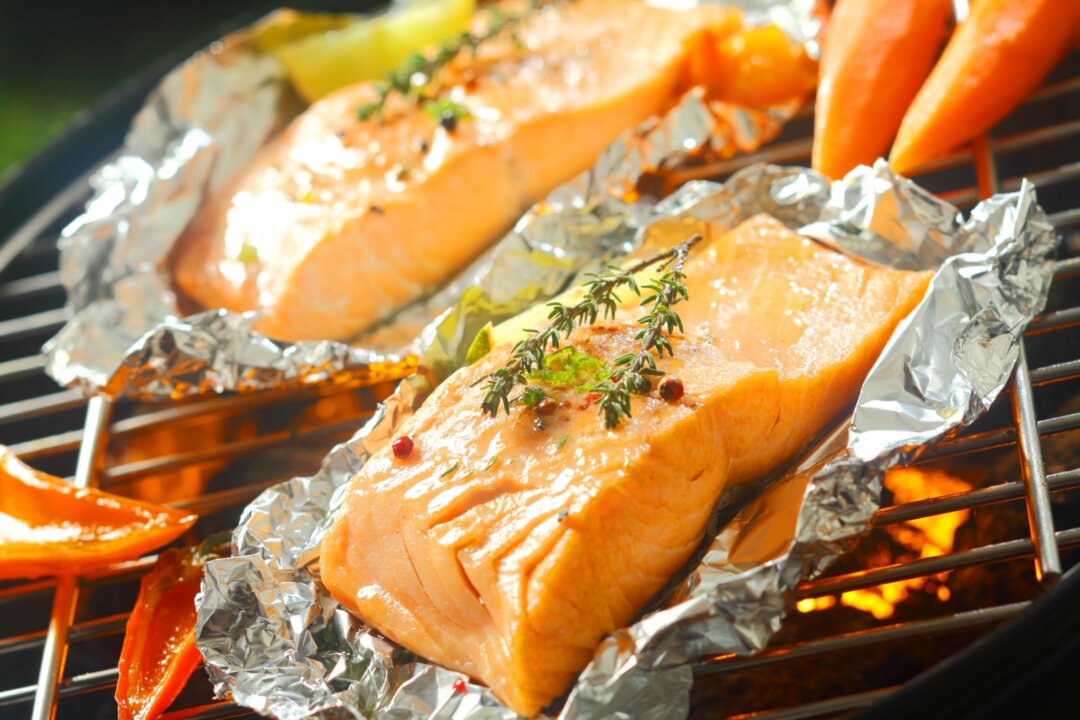Aluminum foil, a kitchen staple used by millions for baking, grilling, and storing food, is now at the center of a growing debate. Concerns about aluminum safety have led experts to question whether this common household item may pose hidden health risks. Often referred to as tin foil, aluminum foil is a go-to choice for various cooking tasks.
Whether roasting vegetables to a caramelized finish or grilling meats to a crisp, aluminum foil helps achieve the desired texture and finish. Foil “conducts heat evenly and keeps it consistent, making cleanup easier by keeping baking sheets clean,” Abbie Gellman, registered dietitian and chef, told The Epoch Times. The amount of aluminum released depends on acidity, salt content, cooking temperature, and exposure time.

“The phenomenon of aluminum leaching from aluminum foil to the food occurs and should arouse attention and concern,” the authors wrote, recommending that aluminum foil be avoided for baking to minimize health risks. In response to these concerns, the International Aluminum Institute told The Epoch Times in an email that most studies show only minimal amounts of aluminum from cookware and foil entering food, with the majority being eliminated by the body. “Very little of the aluminum that we ingest from foods and food contact materials is absorbed by the body,” according to the Institute.
A safe weekly intake of aluminum is 1 milligram per kilogram of body weight, according to current WHO and EFSA guidelines. For an average adult weighing 154 pounds, this translates to a maximum of 70 milligrams of aluminum per week to minimize any potential long-term health risks. While aluminum is prevalent in our environment, it doesn’t have a necessary role in our bodies, unlike many other metals, including zinc, copper, and iron.
Neurological damage : Aluminum exposure can lead to memory loss, tremors, diminished coordination, seizures, coma, and potentially death. Bone disorders : Accumulation of aluminum in bones can cause osteomalacia (softening of bones), osteoporosis, non-healing fractures, and other musculoskeletal issues. Kidney and liver damage : Aluminum poisoning can lead to kidney damage, changes in urea and creatinine levels, and liver conditions such as fatty liver and Type 2 diabetes.
Respiratory issues : Prolonged exposure to aluminum dust can cause respiratory problems, including asthma, chronic bronchitis, chronic obstructive pulmonary disease, and possibly lung cancer. Blood disorders : Aluminum exposure can alter red blood cells, leading to anemia characterized by abnormal cell shapes and sizes. Oxidative stress : Aluminum can increase oxidative stress in the body, leading to cellular damage, particularly in the brain, liver, and kidneys.
Enzyme inhibition : Exposure to aluminum may disrupt enzyme activities, protein synthesis, and DNA repair, contributing to various health issues. Cooking food : C onsider switching to glass or ceramic cookware instead of aluminum, and avoid using aluminum foil with acidic or salty foods. Storing food: Use glass containers to keep your food fresh and safe from aluminum.
Baking: Opt for glass, ceramic, stainless steel, silicone, or unbleached parchment paper instead of aluminum pans. Grilling: Cook directly on the grill, use a grill basket, or try cedar grilling papers as a substitute for aluminum foil. Although the body can naturally excrete aluminum, it’s important to minimize unnecessary exposure in vulnerable groups like children, older adults, and people with kidney issues.
As new findings emerge, the debate over aluminum foil’s safety remains unresolved. While it offers undeniable convenience, understanding and managing the potential risks is crucial for making informed choices in the kitchen..


















